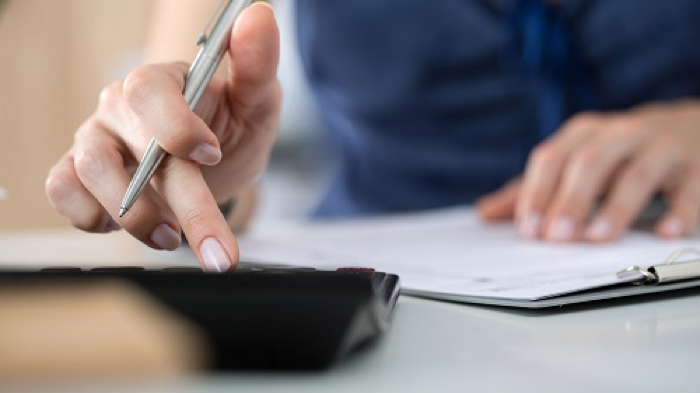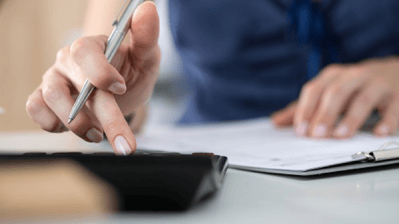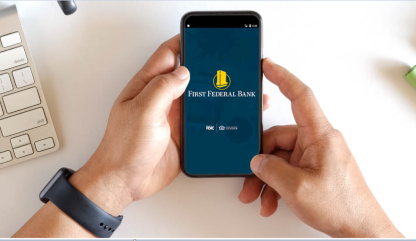Why is Financing Better than Leasing?
Navigating the car buying process can feel overwhelming, confusing and inaccessible for many people. One of the most complicated parts of the...
Manage your everyday finances with convenient accounts, flexible cards, and personalized service designed to fit your life.
At First Federal Bank, we offer flexible mortgage solutions for almost any situation, helping you secure the right financing for your dream home.
Business banking offers secure financial management, streamlined transactions, credit options, and tools to help businesses grow efficiently and sustainably.
2 min read
First Federal Bank : April 23, 2021 10:00:00 AM EDT

 Even though financial transactions today are increasingly paperless, there are still advantages to using a check book. They can help you avoid processing fees, leave behind a useful paper trail for your spending, and give you a means of transferring funds should the internet be unavailable. But are check books safe? How do you secure your check book?
Even though financial transactions today are increasingly paperless, there are still advantages to using a check book. They can help you avoid processing fees, leave behind a useful paper trail for your spending, and give you a means of transferring funds should the internet be unavailable. But are check books safe? How do you secure your check book?
Obtain valid checks
The first step to ensuring you use paper checks as securely as possible is to obtain them from your financial institution. They will provide you with checks approved by the Check Payment Systems Association. Such checks are marked by a padlock icon on the front and back. Personal finance writer Aja McClanahan says, “This signifies the check meets basic security standards.”
Store checks in a safe location
To protect your check book from theft or fraud, store them in a secure and locked location along with your deposit slips, monthly statements, and canceled checks. Never leave your check book in your car, whether your car is locked or not. Deirdre Jannerelli, vice president at a New England financial institution, also recommends you, “Never carry a check book around with you.”
Send checks securely
Internet security expert Jerri Ledford warns your mailbox is, “The riskiest non-technological point for identity theft.” With more than 182 million pieces of first-class mail handled every day by the U.S. Postal Service, physical mail is a prominent target for thieves and fraudsters.
One way to get around this problem is to send checks using a security envelope, with the check inside hidden between other papers. You should also avoid mailing bills from an unlocked personal mailbox. Instead, visit the post office or use an official U.S. Postal Service mailbox.
After sending the check, monitor your account closely to ensure it has been cashed. If you suspect it was lost in the mail, call your financial institution to place a stop payment on the check.
Write only necessary information
When writing a check, never write more than the necessary information. Do not write your credit card number, Social Security number, driver identification number, telephone number, or any other type of personal information that criminals could use to steal your identity. Additionally, do not leave blank spaces. “When writing out a check, always include a specific name on the line that says ‘Pay to the order of,’” advises Jannerelli. “Never write ‘Cash’ in this space, or leave it blank, as doing so will allow anyone to cash it.”
Dispose of old checks securely
Old check books often include sensitive information like your address, name, and account number. Instead of simply tossing old checks and check books in the trash, make sure to dispose of them in a way that prevents potential fraudsters from accessing your personal information.
The most common method for disposing of old checks securely is shredding. Goliard Ruelas, founder of the How-To Dispose website, says low-cost shredders are not ideal because they shred in long strips. “Anyone can reassemble the long strips with the help of tape to get your personal information.” Use a cross-cut shredder or shredding scissors for extra security. You can also employ the shredding services offered by your financial institution, burn your checkbook via a safe and legal method, or dissolve it in liquid, though this takes more time.
Even in a world of contactless credit cards and digital payment apps, there is still a place for paper checks. However, make sure to take the necessary precautions to ensure your check book is kept safe from potential thieves and fraudsters.

Navigating the car buying process can feel overwhelming, confusing and inaccessible for many people. One of the most complicated parts of the...

When it comes to personal bank accounts, you probably think of basic checking and savings options. But there are different kinds of accounts you...

The internet and mobile devices have revolutionized how the world works — including banking. In the past, you had to visit a physical building in...
Manage your accounts, make payments, and more.
Open an account with us.